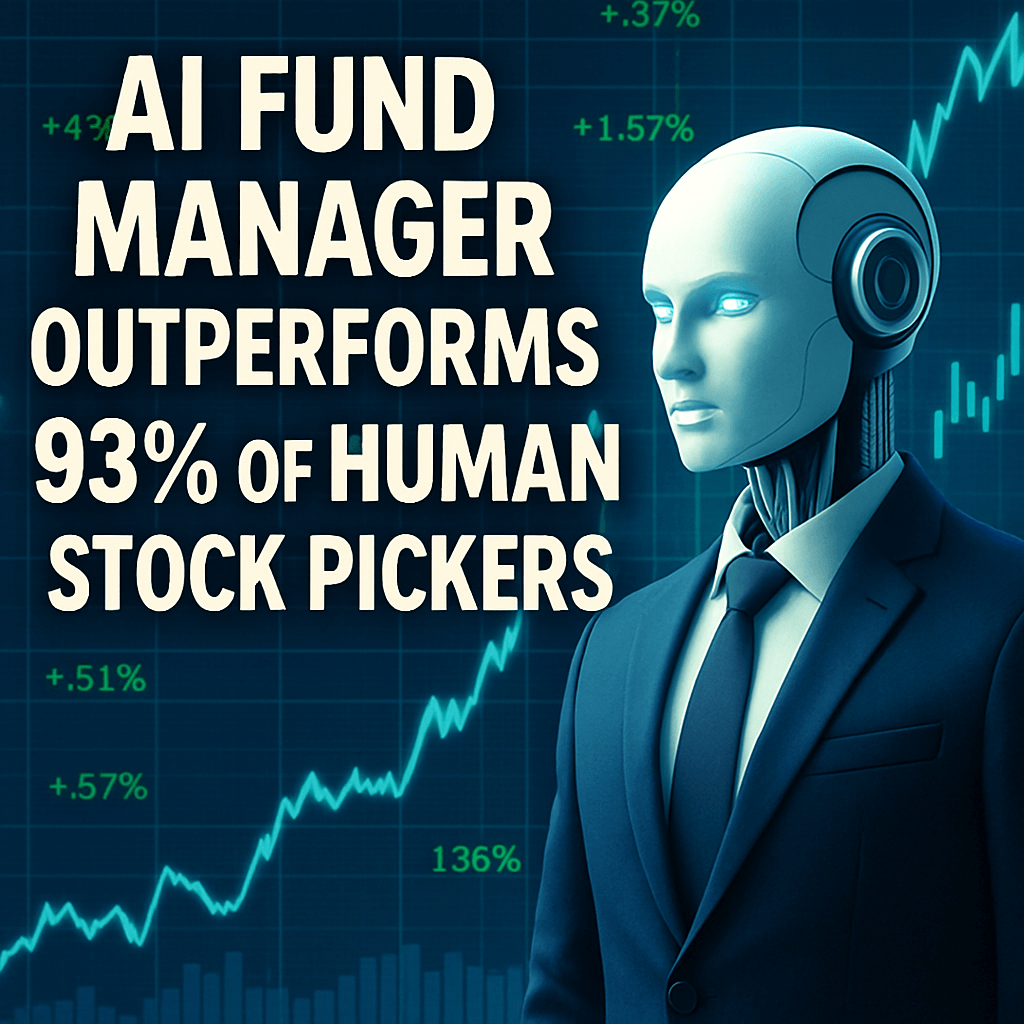AI Fund Manager Outperforms 93% of Human Stock Pickers

In examining the vast potential of artificial intelligence in finance, researchers from Stanford University and Boston College have adopted an innovative approach reminiscent of a science fiction narrative: they created an artificial intelligence (AI) fund manager, likened to the ‘Terminator’ of finance, and assessed its performance against human stock pickers on Wall Street from the 1990s onwards.
The Groundbreaking Study
The researchers developed an ‘AI analyst’ with the capability to modify the portfolios of over 3,300 actively managed mutual funds on a quarterly basis. Their findings revealed that a staggering 93% of the AI-modified portfolios were able to surpass the returns of their human counterparts over the span from 1990 to 2020. The AI fund manager achieved an excess return of $17.1 million in quarterly alpha, highlighting its significant advantage in de-risking portfolios—a capability derived from its ability to analyze publicly available data such as financial statements, analyst forecasts, and market data effectively.
The Methodology Behind AI Performance
This breakthrough was not merely a stroke of luck; it stemmed from an advanced model known as a random forest. This machine learning algorithm excels at classification and regression tasks by constructing multiple decision trees and merging their outputs, thereby increasing predictive accuracy. The AI’s approach involved reclassifying and reorganizing existing data points, allowing it to discover trends that were “hiding in plain sight”.
As noted by Ed deHaan, a professor in Stanford’s accounting department and the leading researcher in this study, the AI’s analysis utilized the same financial resources available to human managers. Hence, the AI did not garner an advantage from accessing hidden information that human analysts might overlook. The critical factor was the AI’s operational efficiency: a task that would traditionally require a team of skilled analysts could be executed by the AI in a matter of hours.
Implications for the Financial Industry
As debates on whether AI will augment or replace human labor within various sectors intensify, deHaan expressed concerns regarding the job security of junior analysts. He suggested that roles primarily revolving around data entry and basic analysis could diminish significantly over the next five years. The traditional belief that successful active fund managers rely on creative thinking and extensive industry contacts is now being scrutinized in light of these findings.
The AI and Compliance Considerations
Despite these positive outcomes, the study is not without its limitations. The AI did not compete against other funds that had access to identical technological advancements. DeHaan emphasized that the landscape would markedly shift when AI becomes ubiquitous in fund management. Additionally, many fund managers face regulatory constraints that limit investment choices, often confining them to large-cap stocks. This limitation can hinder their ability to capitalize on potential market inefficiencies inherent in smaller firms.
Future Landscape of Active Management
Amidst the evolving dynamics, the future of active fund managers remains uncertain. While some senior analysts believe their roles cannot be supplanted by machines, there is consensus that the industry must adapt to the increasing influence of AI. DeHaan himself is cautiously optimistic, suggesting that AI technologies, when appropriately integrated, may lead to a net job creation scenario within the financial sector. Nevertheless, the nature of the roles will inevitably change, favoring those who can leverage AI effectively.
The Bigger Picture
As we look towards the future, it’s essential to frame the potential impact of AI against historical benchmarks. One of the study’s notable points is that the performance it indicated reflects what most human fund managers may have left “on the table” due to a lack of technological investments. With traditional fund fees averaging about $3.6 million per quarter, the gap in performance necessitates a reevaluation of fund management economics moving forward.
In conclusion, while the study stands as a thought experiment illustrating the hypothetical performance divergence had AI technology been available decades ago, it highlights an urgent need for the financial industry to innovate and adapt in the face of technological advancements. The rise of AI will challenge the status quo of fund management and investment strategies, possibly redefining career paths within the sector.
As deHaan summarized, “There will always be a place for managers who can effectively use AI models, or those clever enough to think like humans and ‘out-human’ the AI. They’ll likely remain, albeit in reduced numbers.”
Source: fortune